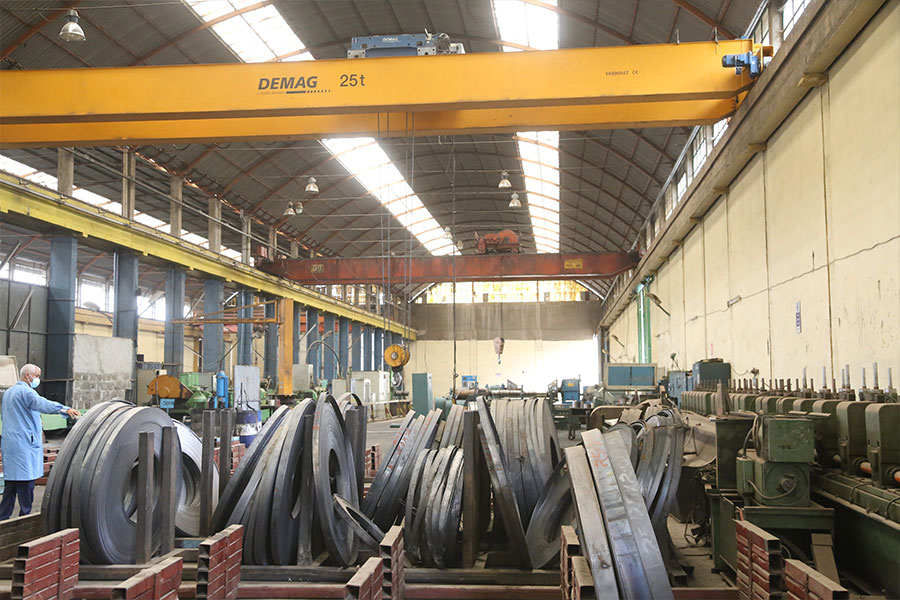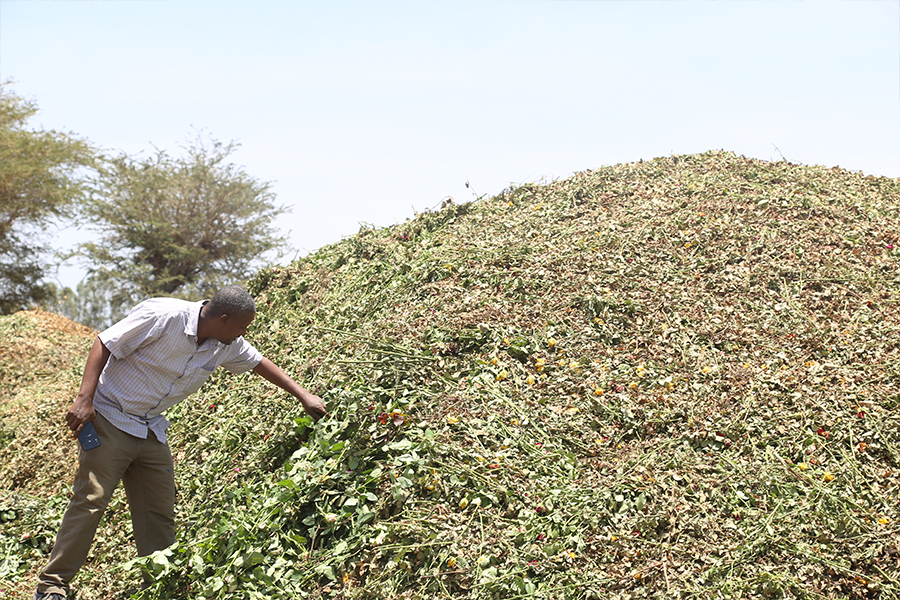
My Opinion | Jul 01,2023
Jun 29 , 2024
By Anne O. Krueger
The World Trade Organization (WTO) is among the greatest success stories of the post-World War II era. By establishing rules based on principles like nondiscrimination among trading partners and equal treatment of foreign and domestic goods, the WTO enabled international trade to flourish, with far-reaching benefits for economic growth and poverty reduction. In this sense, the WTO is like oxygen: essential, but often taken for granted.
Before 1800, international trade accounted for a very small share of global economic activity because transport and communications costs were high, and most countries embraced mercantilist policies. But over the 19th Century, those costs fell. Trade barriers were lowered – first in the United Kingdom (UK), and then across Europe – and an era of extraordinary economic growth began in today's advanced economies.
This period was interrupted by two world wars and the Great Depression – events that, together with the protectionist policies they fueled, caused trade growth and world output to decline sharply. But after WWII, policymakers on both sides of the Atlantic devised plans for a new international economic architecture, shaped significantly by the insights of John Maynard Keynes. The WTO's predecessor, the General Agreement on Tariffs & Trade (GATT), was established in 1947 to ensure that the rule of law prevailed in international trade.
Over the next half-century, tariffs were lowered, trade flourished, and the advanced economies achieved unprecedented – and sustained – GDP growth. In the 1980s and 1990s, developing countries increasingly attempted to get in on the growth bonanza by abandoning their protectionist policies. By the turn of this century, the world was taking open trade – and the robust growth it supported – for granted.
Today, however, the international trading system is under threat.
The US, which spearheaded the GATT, has abandoned its leadership – severely weakening the WTO, especially its ability to settle trade disputes – in favour of protectionism. This process began under President Donald Trump's administration, and has continued – and intensified – under US President Jeo Biden. The US now has introduced high tariffs, particularly on Chinese goods, and extensive subsidies for domestic industries such as semiconductors and solar panels.
In response, other economies – from Canada to Turkey to the European Union (EU) – are implementing their tariffs and subsidies (often targeting the semiconductor industry). When everyone pursues protectionist policies, everyone loses: the countermeasures offset any domestic industry advantages while raising consumer prices. Compounding the problem, non-US businesses are now hesitant to invest in boosting their export capacity, for fear that their access to the US market will be restricted.
Though global trade and GDP continue to grow, the rates have slowed. With Trump and Biden pledging to continue down this protectionist path after this year's presidential election, the global trading system's prospects appear bleak.
Rather than continue this race to the bottom, the world's trading powers must address the disagreements fueling the turn to protectionism, beginning with "unfair" Chinese trading practices. The primary grievances the US and other market-oriented economies expressed are that China heavily subsidises its exports and does not adequately respect intellectual property (IP). The key to resolving these issues, and restoring US global trade leadership, will be to ensure a level playing field, including for IP, for private firms in advanced economies and state-supported Chinese enterprises. To that end, trading arrangements under the WTO must be updated, with Keynesian principles - including equal treatment of foreign traders in domestic courts – adapted to a 21st-century context.
Think tanks and academics should get to work clarifying the details of these new arrangements, including how they will be enforced. There might be a need, for example, for a new international agency tasked with ensuring that state-owned and state-supported companies adhere to updated WTO rules. Mechanisms for monitoring and enforcing IP claims, according to internationally agreed standards, will also be needed.
Restoring an open multilateral trading system will not be easy, but the benefits of doing so are difficult to overstate. Smaller countries have the most to gain (relative to GDP), and might even want to take the lead in formulating plans. But, the increased economic growth brought about by a return to free trade would help raise living standards everywhere. It would also enable governments to strengthen social safety nets, thereby protecting those groups that will inevitably be left behind. It would also lower political barriers to financing action on global challenges, such as climate change, which can be overcome only with international cooperation. If the global trading system continues on its current path, however, economic growth will lag behind its potential, reducing governments' scope for action on social and environmental challenges and undermining international cooperation more broadly. The world would be poorer, more divided, and far more vulnerable to looming existential threats.
PUBLISHED ON
Jun 29,2024 [ VOL
25 , NO
1261]


My Opinion | Jul 01,2023

Fortune News | Jul 02,2022

Viewpoints | Apr 10,2021

Commentaries | Feb 26,2022

Radar | Jul 30,2022

Commentaries | Jan 12,2019

Fortune News | Feb 25,2023

Agenda | Mar 28,2020

Viewpoints | Nov 30,2024

Obituary | Jul 13,2020

My Opinion | 131766 Views | Aug 14,2021

My Opinion | 128149 Views | Aug 21,2021

My Opinion | 126095 Views | Sep 10,2021

My Opinion | 123717 Views | Aug 07,2021

Dec 22 , 2024 . By TIZITA SHEWAFERAW
Charged with transforming colossal state-owned enterprises into modern and competitiv...

Aug 18 , 2024 . By AKSAH ITALO
Although predictable Yonas Zerihun's job in the ride-hailing service is not immune to...

Jul 28 , 2024 . By TIZITA SHEWAFERAW
Unhabitual, perhaps too many, Samuel Gebreyohannes, 38, used to occasionally enjoy a couple of beers at breakfast. However, he recently swit...

Jul 13 , 2024 . By AKSAH ITALO
Investors who rely on tractors, trucks, and field vehicles for commuting, transporting commodities, and f...

Jul 5 , 2025
Six years ago, Ethiopia was the darling of international liberal commentators. A year...

Jun 28 , 2025
Meseret Damtie, the assertive auditor general, has never been shy about naming names...

Jun 21 , 2025
A well-worn adage says, “Budget is not destiny, but it is direction.” Examining t...

Jun 14 , 2025
Yet again, the Horn of Africa is bracing for trouble. A region already frayed by wars...

Jul 6 , 2025 . By BEZAWIT HULUAGER
The federal legislature gave Prime Minister Abiy Ahmed (PhD) what he wanted: a 1.9 tr...

Jul 6 , 2025 . By YITBAREK GETACHEW
In a city rising skyward at breakneck speed, a reckoning has arrived. Authorities in...

Jul 6 , 2025 . By NAHOM AYELE
A landmark directive from the Ministry of Finance signals a paradigm shift in the cou...

Jul 6 , 2025 . By NAHOM AYELE
Awash Bank has announced plans to establish a dedicated investment banking subsidiary...